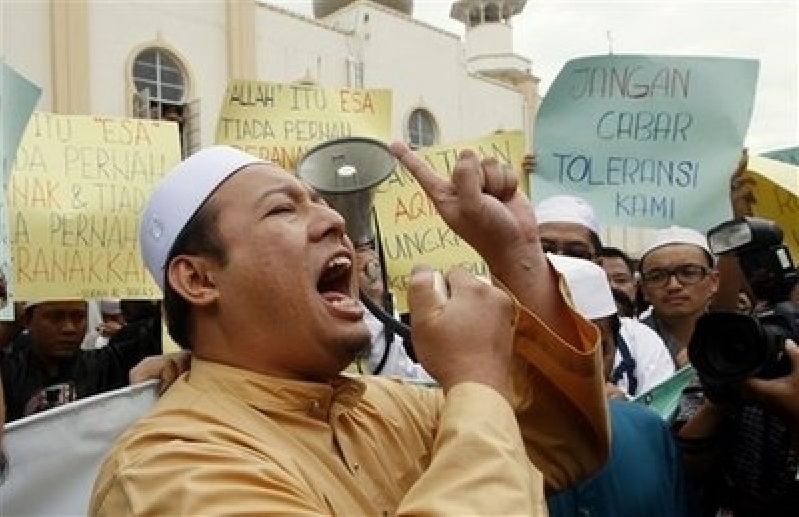
Three churches in Malaysia were attacked with firebombs Friday as Muslims in the country pledged to stop Christians from using the word “Allah” to refer to God.
Many in the predominantly Muslim country are fuming over the recent decision by a Supreme Court that found a ban on the use of the word “Allah” by non-Muslims to be unconstitutional.
After last Thursday’s landmark ruling, Muslim activists were quick to mobilize, including the National Union of Malaysian Muslim Students, which urged the government to take the case to the Appeals Court, arguing that Christian missionaries using the word Allah could trick Muslims into leaving their faith.
Some even managed to hack into the website of the Roman Catholic Church’s weekly Malaysian publication, The Herald, which sparked the internationally-watched court battle.
On Dec. 31, 2009, two years after The Herald first filed suit against the government over the “Allah” ban, High Court Judge Datuk Lau Bee Lan announced that the word “Allah” is not exclusive to Islam and that the government’s Home Ministry is “not empowered” to ban non-Muslims from using the word.
“This … means that the Bahasa Malaysia-speaking community of the Christian faith can now continue to freely use the word ‘Allah’ without any interference from the authorities,” the Rev. Fr. Lawrence Andrew, editor of The Herald, told reporters in Kuala Lumpur.
On Monday, however, Malaysia’s government appealed the court ruling, contending that the word “Allah” is an Islamic word and if used by non-Muslims could confuse Muslims into converting to those faiths.
Those sentiments and more were expressed Friday as young Muslims emerged from two main mosques in downtown Kuala Lumpur, carrying banners and delivering fiery speeches, vowing to defend Islam.
"We will not allow the word Allah to be inscribed in your churches," one speaker shouted into a loudspeaker at the Kampung Bahru mosque, according to The Associated Press. About 50 other people carried posters reading "Heresy arises from words wrongly used" and "Allah is only for us."
Earlier, before dawn, unidentified assailants on motorcycles threw a firebomb at a church in a suburb of Kuala Lumpur, destroying the ground-level office of the three-story building. Hours later, two other churches were attacked - one of which sustained minor damages while the other was reportedly undamaged.
Prime Minister Najib Razak, who condemned the attacks, said the government would "take whatever steps it can to prevent such acts."
No arrests, so far, have been made.
According to the CIA World Factbook, 60.4 percent of Malaysia's 25.7 million people ascribe to Islam. Around 19.2 percent, meanwhile, is Buddhist, and 9.1 percent is Christian.
In general, Muslims enjoy special privileges in Malaysia as Islam is the dominant religion.







